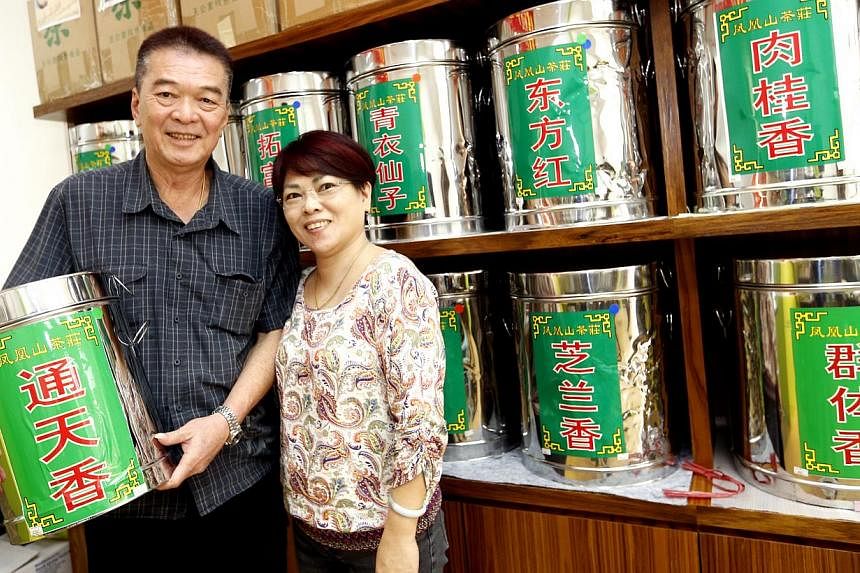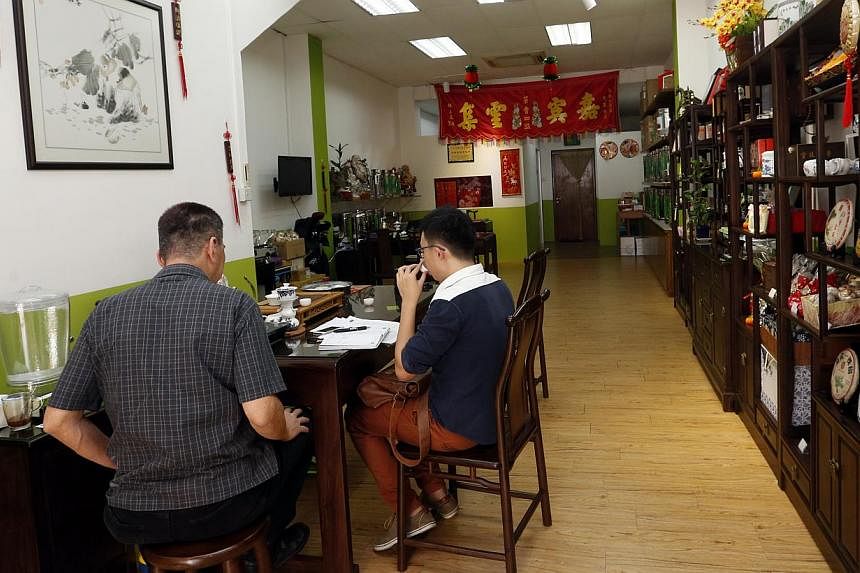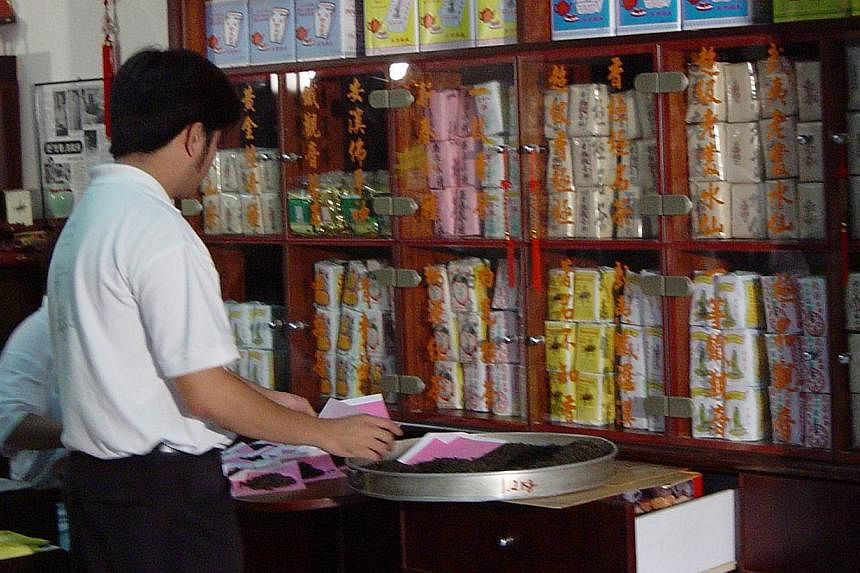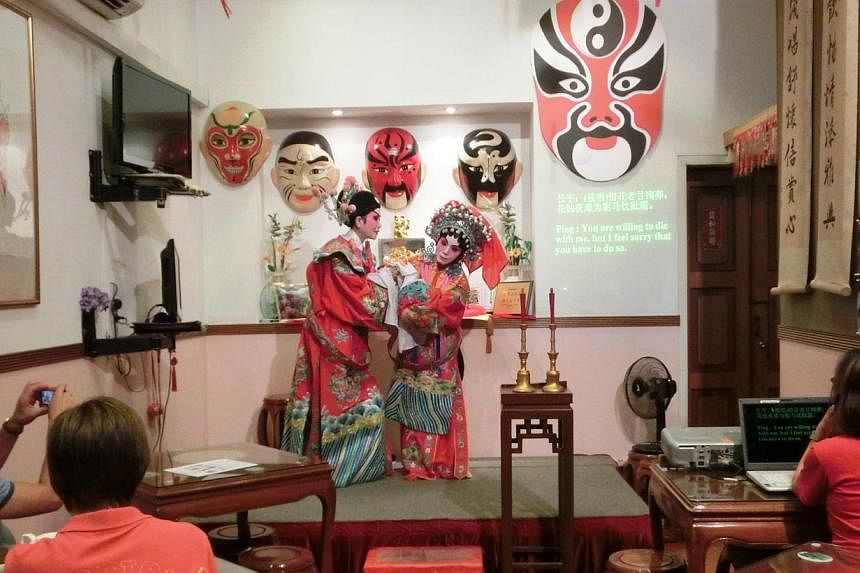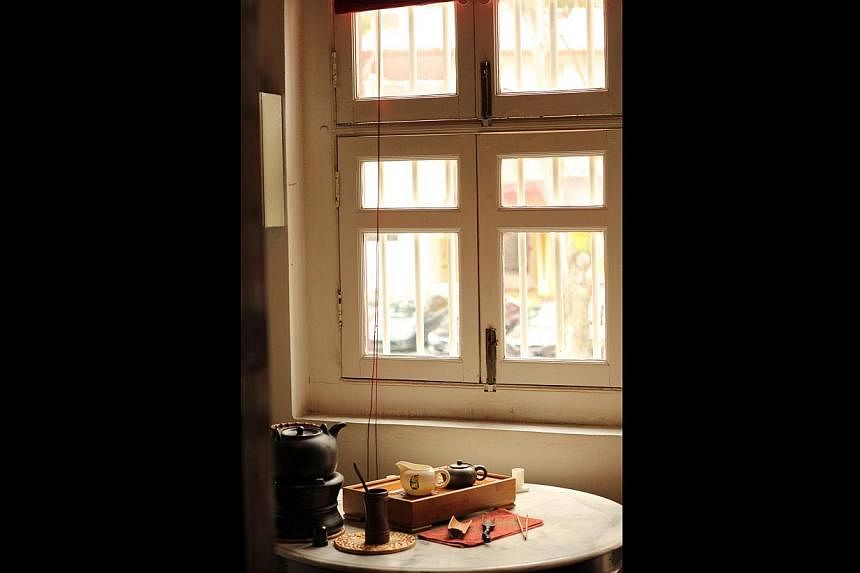The most vivid memory retiree Roger Tan has of his climb up verdant Phoenix Hill mountain in the Guangdong province of China last month was not the punishing ascent or the dramatic tableau of mighty rivers spanning tiny villages that lay below.
Instead, it was nursing a cup of warm, rich and piquant Dancong oolong tea at the end of the climb, which soothed his sore, frigid limbs.
"The tea was so aptly named Tong Tian Xiang, Fragrance to the Heavens," recounts the sprightly 68-year-old. "I did get a little philosophical up there. Drinking warm tea on a cold mountain, it's the closest you'll get to heaven."
In Singapore, Mr Tan makes a twice-weekly jaunt from his Ulu Pandan residence to Phoenix Hill Tea Merchant at Joo Chiat Place for his tea fix.
While teahouses have not sprouted the way hipster cafes have, an appetite for tea is slowly growing among Singaporeans, even with the younger set.
Besides Phoenix Hill, two other places where one can brew and sample tea - Kung Fu Tea House and Tea Culture Academy - have sprung up in the past year, bringing the total to at least eight.
They range from merchants and suppliers who provide tea tasting services to teahouses that can seat up to 140. Some joints also offer dim sum and other snacks such as biscuits and buns for peckish patrons.
Mr Tan was introduced to tea drinking in April by the married owners of Phoenix Hill Tea Merchant, Madam Julie Low, 50, and Mr Steven Lim, 60, when he chanced upon their shop. The couple also co-owns a 40.5ha plantation near Phoenix Hill in Shantou, where they import their tea leaves from, and had invited Mr Tan to China.
"Thanks to them, I don't get a hangover from lack of sleep, I've lost 3kg, I'm in a better mood these days. They've become my cha you," he says with a hearty laugh, using the term for tea buddies.
This convivial, communal spirit of nursing a quality brew over conversation with friends, or yi cha hui you as it is referred to in Mandarin, harks back to China's teahouse culture, which the Lims hope to promote here.
For centuries, in cities such as Hangzhou and Chengdu, teahouses have drawn people from all walks of life - weary travellers, itinerant performers, even street hoodlums.
Over the swirling dance of tea leaves steeped in tinkling cups, countless friendships have been forged, business deals struck and romances kindled.
"Singaporeans are always busy and we find it so hard to slow down. So it's our hope that customers come in, sit with us and just find time to talk over tea," says Madam Low, adding that her shop, which opened in January, gets about 20 regulars weekly.
Prices for tea at these places differ, depending on their type and brand. For instance, 100g of loose leaf Tie Guan Yin costs $30 at Phoenix Hill, while the same amount of premium-grade Tie Guan Yin would cost $6 more.
Teahouses are also seeing younger customers.
At 89-year-old tea merchant Pek Sin Choon in Mosque Street in the heart of Chinatown, half of its customers are now aged between 20 and 40, up from a fifth in 1999, says the shop's assistant general manager, Mr Yuen Eng Wah, 44.
"I'd say this trend is due to the well-documented health benefits of tea, and also general interest in the culture," he adds.
Tea artist and consultant Carrie Chen, 44, attributes this popularity to growing interest in China, which has risen as a global superpower.
"More people, especially those from the Middle East and America, are learning the Chinese language. They're trying to understand its culture, so tea is an entry point," she says.
Ms Mandy Long, 30, co-owns contemporary Kung Fu Tea House, which opened a month ago at Temple Street.
"There's definitely a market for the younger crowd. Eight out of 10 customers are aged 25 to 40. Sometimes, it's full house on weekends," the naturalised Singapore citizen tells Life! over a cup of potent, earthy pu'er tea from her home province of Yunnan.
The decor of the 40-seater joint - oak floor panels, airy interiors with plenty of light let in by the glass facade - was carefully curated to cater to a young crowd, her business partner, former stockbroker David Tan, 53, says.
He stopped consuming soft drinks and switched to tea two years ago, upon a friend's recommendation.
"I'm calmer and more alert, and it lowered my cholesterol and blood sugar. But it was an acquired taste, especially when I was so used to sweetened drinks," says Mr Tan, who also quit smoking and drinking.
Shipyard supervisor Jay Sim, 36, makes a twice-weekly trip from his Jurong home to Kung Fu Tea House for tea. "I'm out in the sun a lot because of my work, so the green tea helps me cool off," he says.
But while tea is a healthy drink, it is not medicine, notes Ms Alice Keak, 57, manager of Yixing Xuan Teahouse at Tanjong Pagar Road. Most of her customers are professionals and managers in the area, who stop by with their clients.
"Some of them buy whole tea sets, with the teapot and cups. I guess it's more comfortable to talk shop over tea," she adds.
Other young tea drinkers such as Ms Tan Shu Jun, 24, wax lyrical about the joys of tea preparation.
"You can admire the tea leaves, and enjoy the aroma and taste while brewing it - it's very calming. The brewing process is very important in Chinese tea," she says.
The creative producing graduate has even parlayed her love of tea into a career - she started work as a marketing executive at Tea Chapter earlier this year.
Elaborately furnished to resemble the teahouses of yore complete with bamboo leaves, calligraphy paintings and rosewood chairs, Tea Chapter counts Japanese and Zambian dignitaries, and even Queen Elizabeth II among its patrons.
A mainstay at Neil Road in Tanjong Pagar for 25 years, it has seen the peaks and troughs of tea culture here.
"In the early 2000s, we had a lot of customers. As more tourist spots developed and the cafes and bars moved in, business dipped," says its executive director Fund Lee, 28, who took over the business three years ago.
While he has observed business picking up in recent years, he remains cautiously optimistic.
"It could become part of the hipster culture. Some are tea lovers who will keep coming back, but most are doing it for the novelty."
Ms Chen agrees. "The trend depends on whether it's sustainable to have so many tea places around, and if the people who serve tea are properly trained and certified. The industry needs people with experience."
